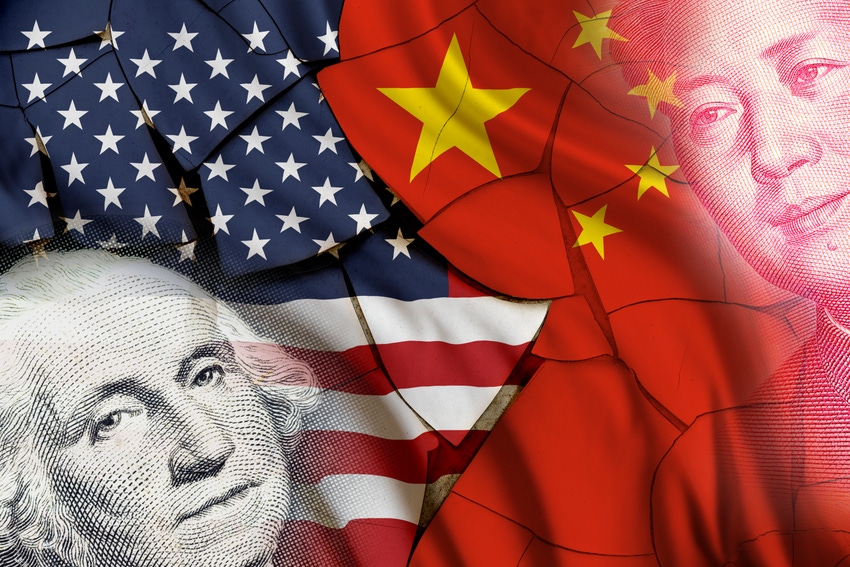Legislative Watch: U.S.-China trade talks resume; auto tariffs on the table; move to save crop insurance; WOTUS and ag hearings set for next week.

The United States and China conducted another round of trade talks this week in Washington, D.C., with negotiators working to develop a framework that President Trump and President Xi Jinping could use to finalize an agreement the next time they meet which is expected to be in mid-March. It is reported that the areas to be covered include agriculture, services, non-tariff barriers, currency, intellectual property rights, forced technology transfers and cybersecurity. Trump plans to meet with China’s top trade negotiator, Vice Premier Liu He this afternoon.
Trump has hinted he may delay the March 1 deadline of increasing tariffs on $200 billion of Chinese goods if progress is made in the negotiations. This would give additional time to reach a final agreement.
Auto and auto parts tariffs under consideration
The Department of Commerce submitted its findings to President Trump on its investigation if imported auto and auto parts are a threat to national security (Section 232 trade law). Trump now has 90 days to decide if he will impose tariffs on these items. In the past, he has mentioned a potential 20% tariff.
The price of imported cars and domestically produced cars would increase as a result of the tariffs. According to the Center of Automotive Research, 40-50% of the average U.S.-built vehicle contains foreign-made components. The National Automobile Dealers Association estimates tariffs could increase the cost of U.S.-built cars by as much as $2,270 and $6,875 for imported cars and trucks.
The United States imported approximately $250 billion of auto and auto parts in 2017 which is estimated to be seven times the value of imported steel and aluminum.
If Trump proceeds with these tariffs, U.S. agriculture will feel the impact through retaliation. The European Union has already said if tariffs are placed on EU cars, they do not have an obligation to purchase more U.S. soybeans.
There is growing public and private calls for the Commerce report to be released to the public.
Organized call to save crop insurance
A coalition of business and producer organizations are calling on the Trump administration to protect the federal crop insurance program and oppose any cuts during this year’s budget process. The administration has proposed cuts in its previous budgets.
In a letter to Secretary of Agriculture Sonny Perdue, the coalition reminded the secretary that USDA has projected that 2018 farm profitability will be lower than it has been in over a decade. The coalition says, “An over-reliance on budget savings from the agriculture community and from crop insurance will unquestionably undermine rural economies. … It’s also important to note that in a time of uncertainty in the farming and ranching community — from natural disasters to trade disputes to government shutdowns — the public-private partnership that is crop insurance has been a consistent and reliable risk management tool.”
Those signing the letter include the American Bankers Association, American Farm Bureau Federation, American Soybean Association, Farm Credit Council, National Association of Wheat Growers, National Corn Growers Association, National Cotton Council, National Farmers Union and U.S. Rice Producers Association.
WOTUS public hearing next week
The Environmental Protection Agency and Department of the Army are holding a public hearing Feb. 27-28 in Kansas City regarding the administration’s proposed rule on Waters of the U.S.
The proposed rule would give federal protection to major waterways, rivers, tributaries, wetlands adjacent to federally protected waterways, certain lakes and ponds, reservoirs and ditches used for navigation or affected by tide. States would have jurisdiction over ditches, terrain that fills with water during or in response to rainfall, certain wetlands that have grown crops, stormwater control ponds, and water and wastewater treatment systems.
The WOTUS rule has been a major issue for the agricultural community. There was strong opposition to the Obama administration’s proposed rule.
Ag hearings also next week
The House Agriculture Committee will hold a hearing on Feb. 27 on “The State of the Rural Economy” with Secretary of Agriculture Sonny Perdue. On Feb. 28, Perdue will testify before the Senate Agriculture Committee regarding the implementation of the 2018 farm bill.
Source: P. Scott Shearer, who is solely responsible for the information provided, and wholly owns the information. Informa Business Media and all its subsidiaries are not responsible for any of the content contained in this information asset.
About the Author(s)
You May Also Like



